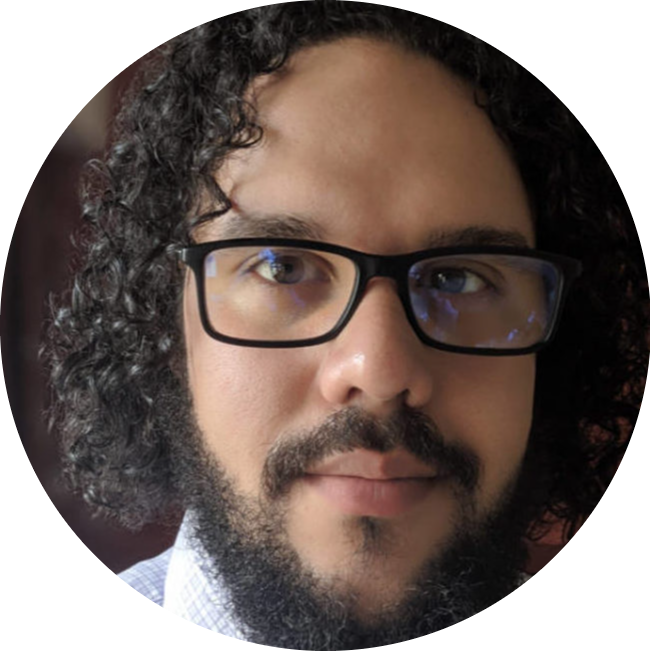CMNCP 2021 Biographies
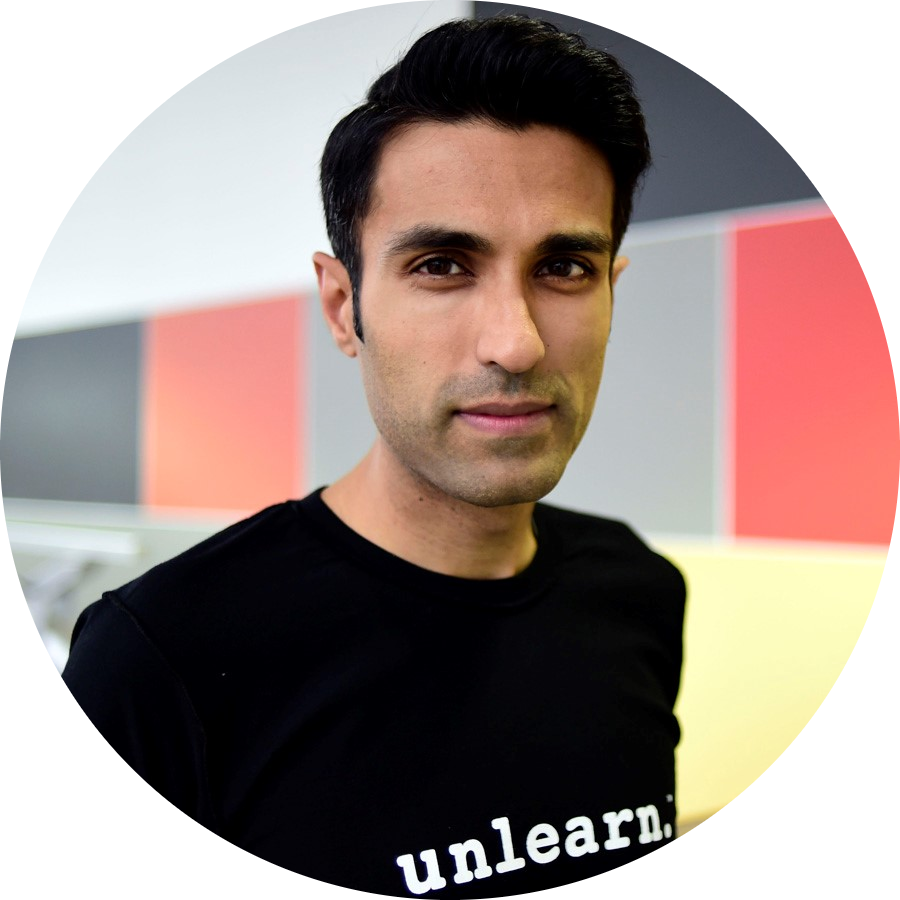
Abhi Ahulwalia
Abhi is the founder of unlearn, a social enterprise whose vision is to inspire people to see the humanity in everyone. Abhi has championed human rights, equity and social justice in the private and public sectors working with school boards across Canada and organizations such as Crown Indigenous Relations Northern Affairs Canada, Parks Canada, Shell and Oregon Institute of Technology. Abhi is also the co-founder and past president of YOUCAN, Youth Canada Association. YOUCAN is a non-profit charitable organization dedicated to building a culture of peace among youth. Abhi is the recipient of the Lincoln M. Alexander Award and the Anne and Ed Mirvish Achievement Award which recognizes individuals that have made a significant and innovative contribution towards eliminating racial prejudice and discrimination in our society.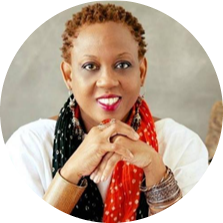
Aina-Nia Ayo’dele Grant
Aina-Nia Ayo'dele Grant is currently the Director of Community Resources at the City of Toronto. She was the lead consultant and integral to the creation of the Toronto Action Plan to Confront Anti-Black Racism. In 2018 she established North America’s first government sanctioned strategy and permanent office to address anti-Black racism. As the director of Social Development, Finance and Administration Community Resources, Aina-Nia has been instrumental in the development and leadership of the City's Community Engagement & Mobilization for Vaccine Equity, including the establishment of the Black Scientists' Taskforce on Vaccine Equity, Vaccine Accessibility Taskforce and the Youth Vaccine Advisory. She is a well sought-after public speaker on issues within racialized communities, particularly issues of gender and racial equity and African indigenous practices. She has presented to academic, corporate, Faith and civil society audiences across Canada, USA, the Caribbean and Ghana. Aina-Nia has received a number of awards and recognition for her contributions, including 2018 100 Most Accomplished Black Canadian Women in Canada, 2016 Top 100 Black Women to Watch in Canada. And, in 2020 in honour Jamaica 58th Independence she was recognized as one of Jamaica's 58 Best At Home & Abroad. Aina-Nia is featured in the Remembering Her Power documentary film, which was premiered at the 2018 Parliament of World Religions in Toronto and was the featured documentary on Global Africa Television Network and more recently a feature film in a Los Angeles Pan African film festival, PTFF. Aina-Nia is also featured in the YouTube web series, Souls of Women. Her book SELF: An Inner Journey to Re-Membering Your Power is being launch in October 2021.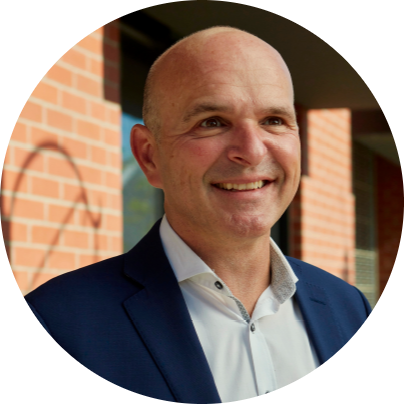
Randy Boissonnault
Randy Boissonnault: A graduate of University of Alberta and Oxford University Randy is a volunteer and entrepreneur. After serving as Chair of the Centre for Family Literacy, Randy founded Literacy Without Borders, an NGO that helps people in developing countries learn to read. Elected to Parliament from 2015-2019, Randy championed Canadian arts and culture as Parliamentary Secretary to the Minister of Canadian Heritage and later fought for a more inclusive Canada as the first Special Advisor to the PM on LGBTQ2 Issues. He continues to fight for a more inclusive society for all as a Co-Founder of the Global Equality Caucus. Randy lives in Inglewood with his partner, David. Randy was elected to represent Edmonton Centre again in 2021.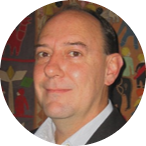
Alexander Butchart
Alexander Butchart is the Violence Prevention Unit Head in the Department for the Social Determinants of Health at the World Health Organization (WHO) in Geneva, Switzerland. His responsibilities include the development of policy for the prevention of interpersonal violence, preparation of guidelines for the prevention of specific types of interpersonal violence, and the coordination of research into various aspects of interpersonal violence and its prevention. Prior to joining WHO he worked mainly in Southern and East Africa, where he was lead scientist in the South African Violence and Injury Surveillance Consortium, and in collaboration with the Uganda-based Injury Prevention Initiative for Africa participated in training violence and injury prevention workers from several African countries. He has been a visiting scientist at the Swedish Karolinska Institutet's Division of Social Medicine and is a widely published social scientist.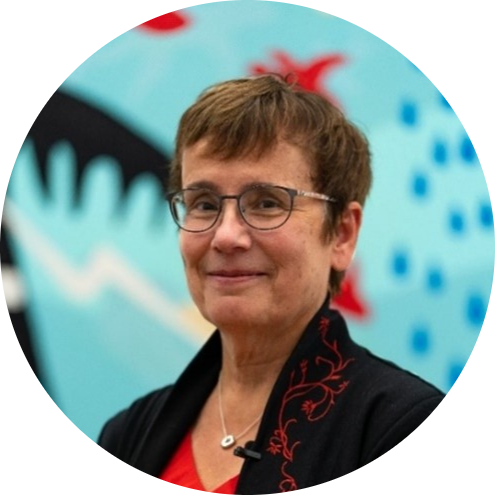
Annette Trimbee
Dr. Trimbee is the president and vice-chancellor of MacEwan University, having previously served as president and vice-chancellor of the University of Winnipeg. Prior to that, she held several Government of Alberta senior leadership positions, including appointments as deputy minister with Advanced Education & Technology and with Treasury Board & Finance.Dr. Trimbee currently serves on the board of Universities Canada, the International Red River Board (IRRB), and chairs the Canadian Research Knowledge Network board (CRKN). In the Fall of 2020 the City of Edmonton appointed Dr. Trimbee to chair the Community Safety and Wellbeing Task Force, which developed recommendations to address racism, discrimination, excessive use of force, poverty, and homelessness in Edmonton. Dr. Trimbee and the task force presented their report to the City of Edmonton “Safer for All, Report and Recommendations of the Community Safety and Well-Being Task Force” in April 2021
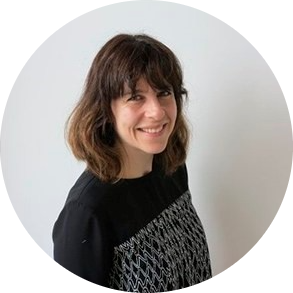
Ariane de Palacio
Ariane de Palacio joined the ICPC team in January 2017. She holds a Ph.D. in geography. She has worked worked as a lecturer and researcher on a number of issues relating to multi-scale conflicts, natural resource governance, and public participation, particularly in Latin American contexts. At the ICPC, she has led several international research projects and technical assistance missions, notably with various UN agencies. As Director of Research, Innovation, and International Relations, she oversees content development, research projects and the international strategic development of the ICPC.
Brent Decker
Brent Decker, MPH, MSW, is the Chief Program Officer at Cure Violence. Mr. Decker is responsible for overseeing all local, national, and international program implementation, oversight and curation of training for the entire Cure Violence ecosystem, and collaboratively setting and steering the strategic direction of the organization. Before joining Cure Violence, Mr. Decker worked on a number of social justice and community health projects in Latin America.
Cindy Blackstock
A member of the Gitxsan First Nation, Cindy is honoured to serve as the Executive Director of the First Nations Child and Family Caring Society and a professor at McGill University’s School of Social Work. She has over 30 years of experience working in child welfare and Indigenous children’s rights and has published more than 75 articles on topics relating to reconciliation, Indigenous theory, First Nations child welfare and human rights. Cindy was honoured to work with First Nations colleagues on a successful human rights challenge to Canada’s inequitable provision of child and family services and failure to implement Jordan’s Principle. This hard-fought litigation has resulted in hundreds of thousands of services being provided to First Nations children, youth and families.She recently served on the Pan American Health Commission on Health Equity and Inequity and fundamentally believes that culturally-based equity is fundamental to meaningful reconciliation. Cindy is frequently sighted in the company of the Caring Society’s reconciliation Am-bear-rister, Spirit Bear, engaging children in meaningful actions to implement the TRC Calls to Action.

Conrad Prince
Conrad Prince is an Anishinabe, a member of Sagkeeng First Nation in Treaty 1 terrority in Manitoba. He is trained in Criminology and Sociology and currently addresses Indigenous child rights as the Director of the National Reconciliation program at Save the Children Canada. Conrad is a strong advocate for addressing systematic discrimination and inequality related to Indigenous children, families, communities, and nations as a survivor of the Sixties Scoop era. He is currently an advisory member of a national committee dedicated to examining the Indigenous child welfare system. Conrad has over a decade of working in the Indigenous health research field, focusing on population health, health data governance, and implementation and evaluation.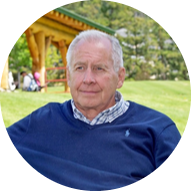
Dave Dickson
Dave recently retired from his position as the Manager of Community Safety for the City of Williams Lake, where he was responsible for multiple community safety programs and the management of the RCMP based victim services team. I worked as a regular member of the Royal Canadian Mounted Police stationed in several communities throughout British Columbia, and as a Road Safety Manager for the Insurance Corporation of British Columbia. Both were lengthy careers which were community-based and all about building positive relationships that forged very strong partnerships around community safety.Dave continues to be involved in Emergency Support Services for the City of Williams Lake and Cariboo Regional District. He has worked in depth with Indigenous communities in all aspects of his career. Dave is an avid road bike cyclist, kayaker, and hiker. Williams Lake is his permanent home and his wife and him are blessed with 3 children and 9 grandchildren that are all healthy and happy.

Denise Andrea Campbell
Denise Andrea Campbell has been working nationally and internationally on social inclusion issues since the age of 16. Before joining the City of Toronto, she worked internationally on race and gender policies in numerous United Nations forums and the African Union.Denise joined the Toronto Public Service in 2004 as a Community Development Worker assigned to the Toronto Youth Cabinet, and quickly moved on to progressively more senior positions. In the City of Toronto’s Social Development, Finance and Administration Division she’s worked in youth development, led the Toronto Strong Neighbourhoods Strategy, and as Director of Community Resources, oversaw the City's neighbourhood revitalization, Tower Renewal, community development, and community funding portfolios.Most recently, she was named Executive Director, Social Development Finance and Administration Division in Community and Social Services.Denise holds a Masters of Voluntary Sector Management from McGill University and completed her undergraduate degree in Political Science and Women's Studies at the University of Ottawa and University of Toronto. She is a passionate transformational leader able to work collaboratively with a broad range of community and institutional stakeholders, building agreement and support across many divergent perspectives and competing interests.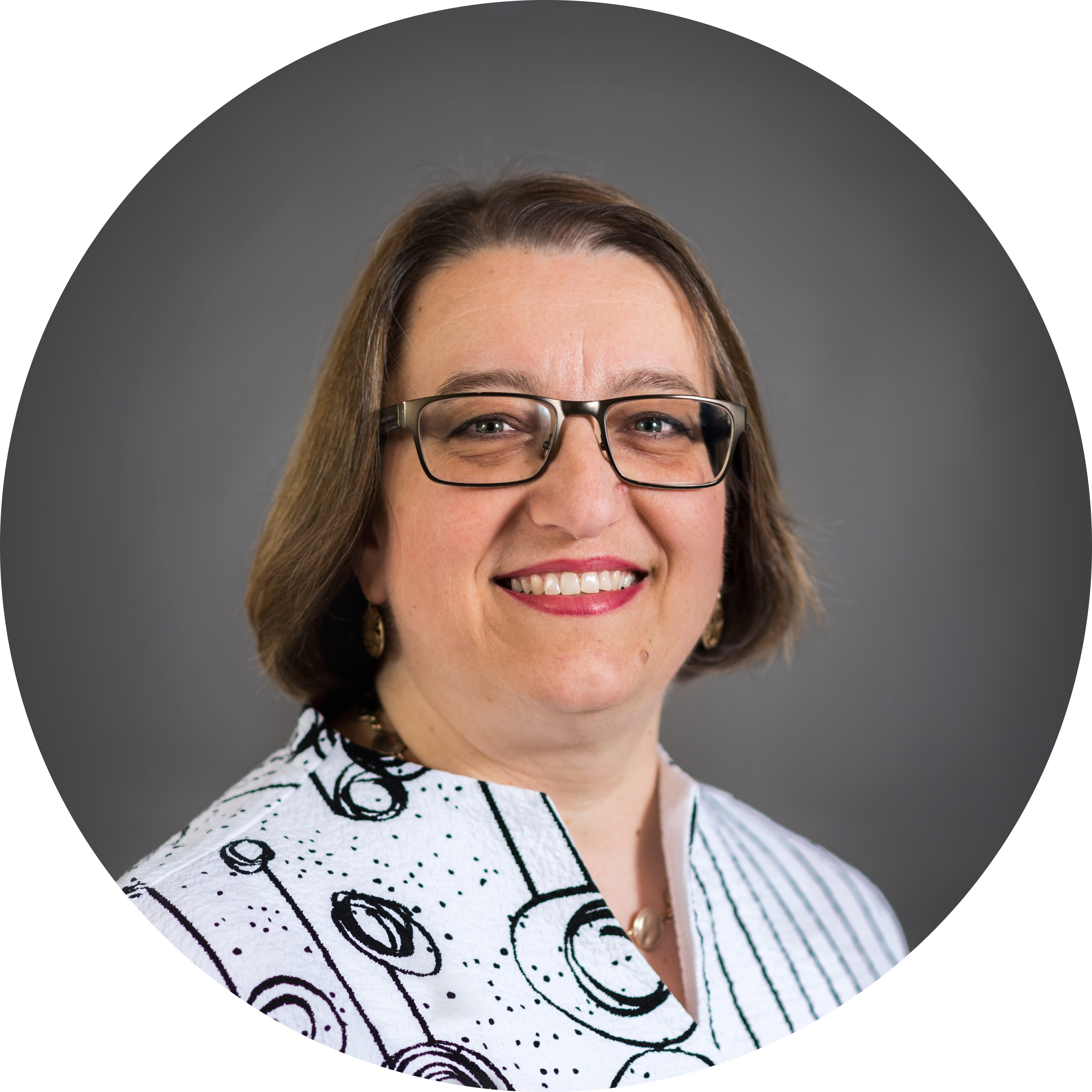
Elizabeth Saewyc
Elizabeth Saewyc, PhD, RN, FSAHM, FCAHS, FAAN, is a Professor and the Director of the School of Nursing at the University of British Columbia in Vancouver, Canada. She also leads the multidisciplinary Stigma and Resilience Among Vulnerable Youth Centre at UBC. For over 20 years, her research has focused on how stigma, violence, and trauma influence adolescents’ health and coping behaviours, and what protective factors can foster resilience and improve health equity for marginalized young people, particularly LGBTQ2S+ youth.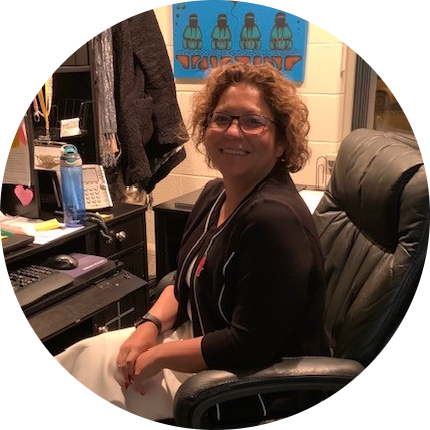
Erica Beaudin
Erica Beaudin (she/her) is a Nehiyaw/Metis woman from both the Cowessess First Nation and the Marieval Metis community on Treaty Four territory. She is grandmother, mother, wife, aunt, niece, cousin and kin to many. Her western education and credentials are in the area of Women’s/Gender studies as well as Indigenous Business Administration and Sovereignty. However, it has been the life long learning from Indigenous Knowledge Keepers, spiritual elders and matriarchs in which she has found the most benefit for her role as Executive Director for the Regina Treaty Status Indian Services, Inc. (RT/SIS). Erica has held this position since 2007 and previous to this, for eight years she was Executive Director for the Women’s Secretariat at the Federation of Sovereign Indigenous Nations and prior to that was the Senior Communications Consultant/Aboriginal Lens for the Ministry and Minister of Social Services for the Province of Saskatchewan. Through the teachings of the Indigenous Knowledge Keepers, Erica works with the team of professionals at RT/SIS to decolonize and rebuild systems that will benefit urban Indigenous people and other marginalized peoples. RT/SIS has developed a holistic and integrated promising practice model that walks with the people who come for assistance, for several years if necessary. This model removes the shame, blame and guilt and replaces it with educational, cultural and spiritual tools for self and community actualization. This is the lens Erica will be speaking from on the Keynote panel as she discusses the impact and future considerations of urban Indigenous people and COVID-19.
Ghayda Hassan
Dr. Ghayda Hassan is a clinical psychologist and professor of clinical psychology at UQAM university in Montreal and has several research, clinical and community based national and international affiliations. She is the director of the Canadian Practioner Network for the Prevention of Radicalization and Extremist Violence : https://cpnprev.ca (CPN-PREV, funded by PS Canada). She is UNESCO – PREV Co-Chair (Prevention of Radicalization and Extremist Violence), a worldwide first : http://chaireunesco-prev.ca/fr/acceuil/ . She is also a reseacher and senior clinical consultant at the SHERPA-RAPS (RAPS for Research and Action on Radicalisation and Social Suffering ; (http://www.sherpa-recherche.com/fr/recherche-pratiques/souffrancesocialeetradicalisation/) at the CIUSSS Center-West of the island of Montreal. Her systematic reviews, research and clinical activities are centred around four main areas of clinical cultural psychology: 1) Social suffering, intercommunity relations, radicalisation and extremist violence ; 2) Intervention in family violence & cultural diversity ; 2) Identity, belonging and mental health of children and adolescents from ethnic/religious minorities ; 3) working with vulnerable immigrants and refugees.Her clinical and research activities focus on the interplay of culture, identity, mental health and violence among the specific studied groups. Often what determines working with a given group stems from the social realties at hand and particularly, the needs of clinical and community milieux with whom she works closely.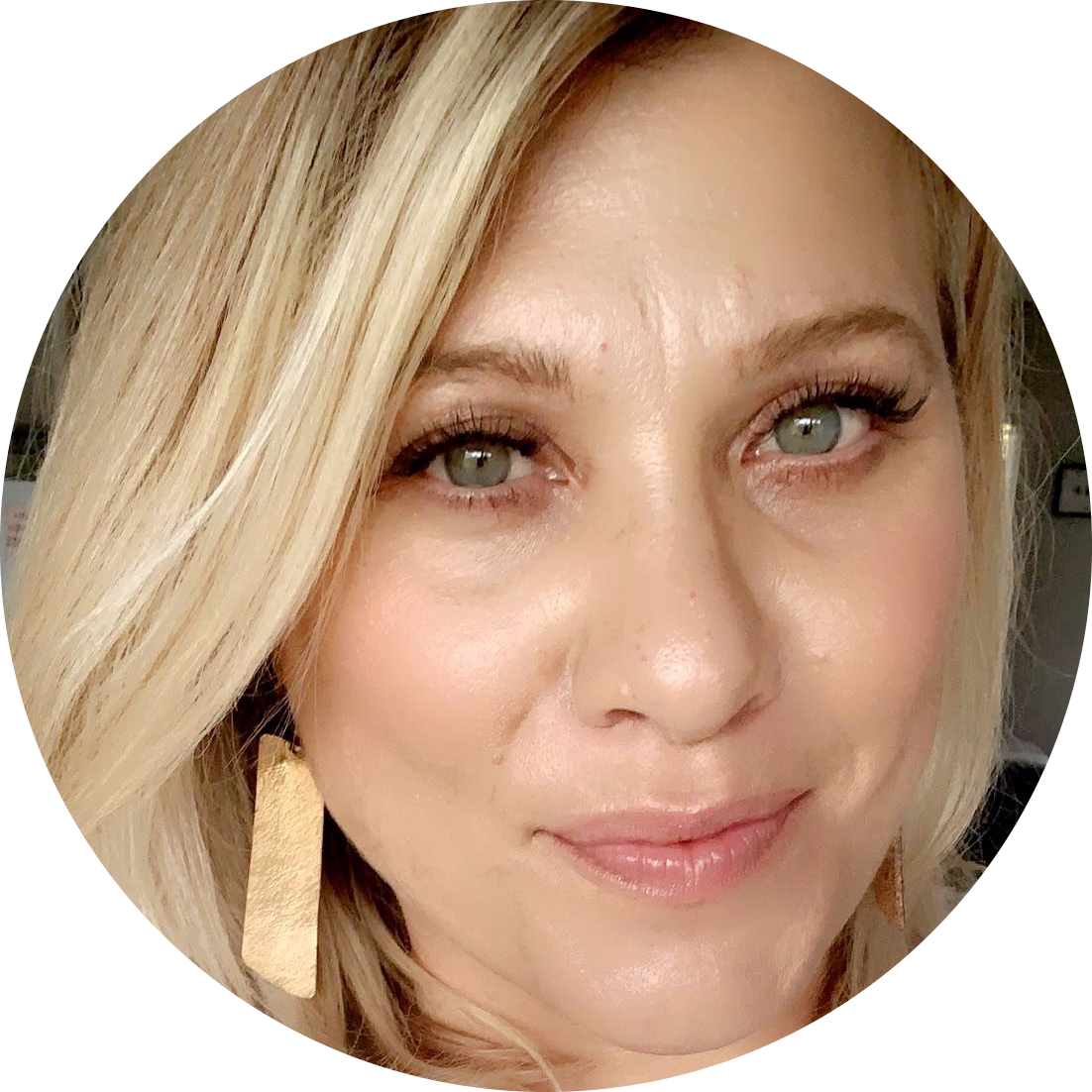
Hayley Irving
Hayley works for REACH Edmonton as a Connector prototype. In many ways, she is the Original Losstender. With a background as a a child and youth care worker, Hayley now sees herself as a social justice worker, who found her passion in supporting marginalized individuals and their community through the transitions of grief, loss, and death. Now a certified Contemplative End of Life Care Practitioner, and proven hustler, Hayley brings the energy, compassion, and the let’s-make-it-happen attitude. “Do not be daunted by the enormity of the worlds grief. Do justly now, love mercy now, walk humbly now. You are not obligated to complete the work, but neither are you free to abandon it.”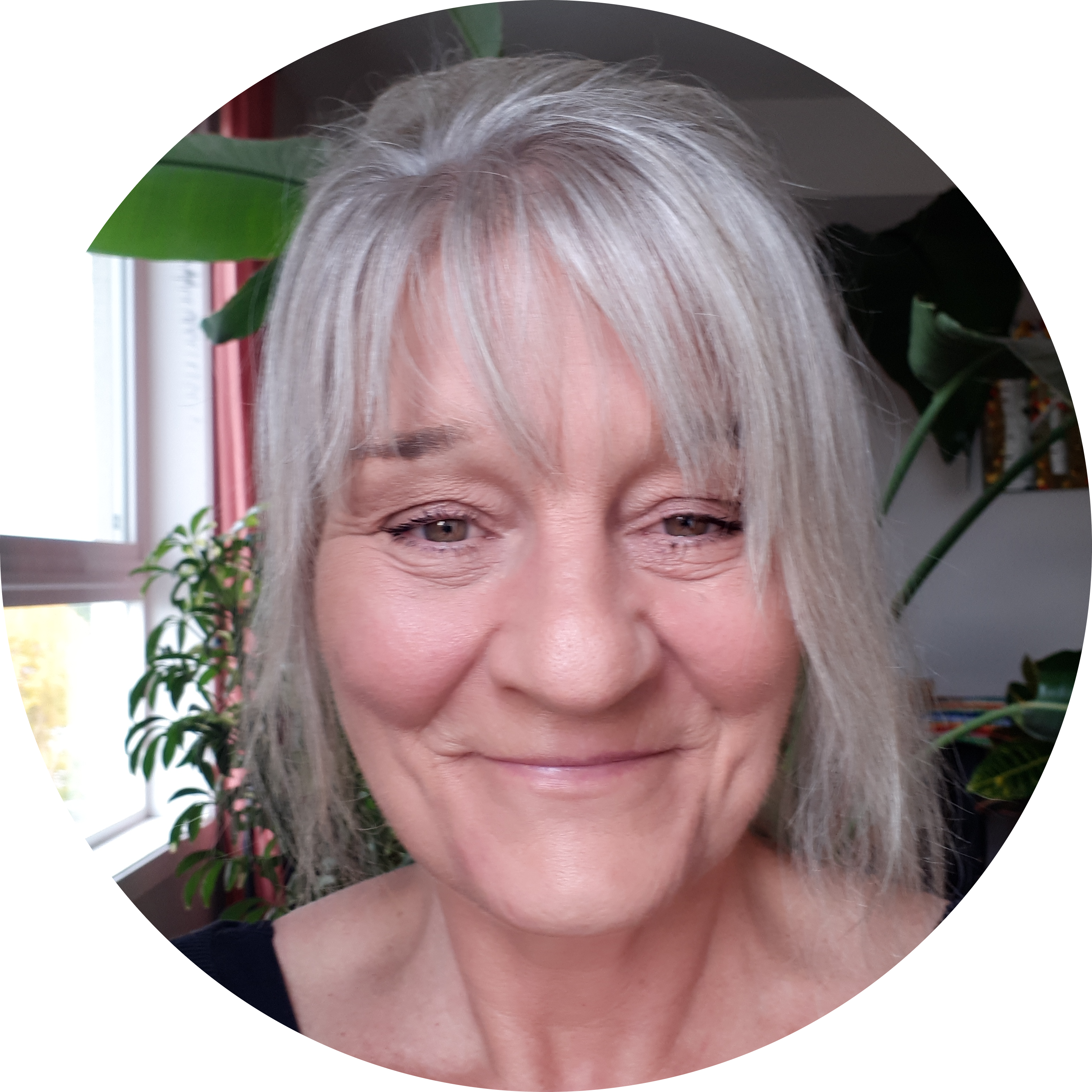
Heather Leslie
Heather has been working in Local Government Administration at the CAO level in several villages in Alberta for the past eight years. She is passionate about lending to the success of small towns and their people.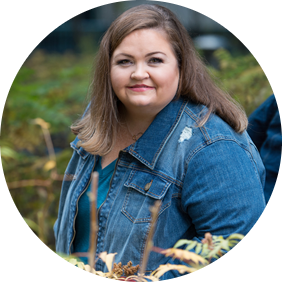
Heidi Illingworth
Heidi Illingworth is the Executive Director of Ottawa Victim Services, a community-based agency that provides emotional support, practical assistance, referrals and advocacy to victims of crime and tragic circumstances. She has extensive experience in the victim services field. She served as the Federal Ombudsperson for Victims of Crime from 2018-2021, providing recommendations to federal Ministers of Justice and Public Safety. Prior to this, she spent 20 years in front line service delivery for victims of serious crime and interpersonal violence. She served as the Executive Director of the Canadian Resource Centre for Victims of Crime for over 11 years and also developed and taught courses in the postgraduate Victimology program at Algonquin College for 7 years. She has created resources to help support victim service providers, as well as programs to support individual victims of crime and their families. Most notably, Ms. Illingworth is the recipient of the Queen Elizabeth II Diamond Jubilee Medal for her service to Canadians.
Irvin Waller
Irvin Waller is a leading international expert on the prevention of violent crime. He has written the books that combine knowledge and implementation. They explain the conclusions from multiple scientific and practical sources of what has been shown to stop violence. They identify the essentials for governments and cities to apply the knowledge successfully. They justify decisive actions now to cut street and gender-based violence in half by 2030. He is invited regularly across the world and has received international recognition for his pioneering contributions to violence prevention and the rights of victims from various European countries, Mexico, and North America. He was: at the start of the Safer Cities program with UN Habitat; advised UNODC on guidelines on the rights of crime victims and crime prevention; worked with the Inter-American Development Bank in investments to reduce violence; and collaborates with the World Health Organization in the prevention of violence. His latest book is Science and Secrets of Ending Violent Crime. He is a professor emeritus at the University of Ottawa, Canada, and has a master's degree in economics and a doctorate. in Law from the University of Cambridge.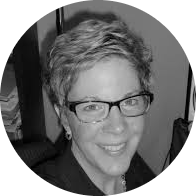
Jaqueline Gahagan
Jacqueline (Jacquie) Gahagan, PhD (medical sociology) is the Associate Vice-President of Research at Mount Saint Vincent University (MSVU) in Halifax Nova Scotia. Prior to joining MSVU Jacquie was a Full Professor of Health Promotion in the Faculty of Health at Dalhousie University where they taught community health promotion strategies, program planning, and measurement and evaluation courses. Jacquie serves as the Co-Director of the Atlantic Interdisciplinary Research Network for Social and Behavioural Aspects of HIV and HCV (airn.ca), is a Founding Fellow of the MacEachen Institute for Public Policy and Governance, and is an Affiliate Scientist with the Nova Scotia Health Authority. Prior to this, Jacquie held a variety of Research Scholar and Research Associate positions with the Jean Monnet European Union Centre of Excellence, the Atlantic Centre of Excellence for Women’s Health, the Health Law Institute, the Healthy Populations Institute, the Beatrice Hunter Cancer Research Institute, among others. Jacquie is a Scientific Officer for the Canadian Institutes of Health Research (CIHR) and an Institute Advisory Board member of the CIHR Institute of Gender and Health.Jacquie’s program of mixed methods health promotion research focuses on evaluating policy and programming interventions using sex and gender-based analyses (SGBA+) to identity and address health inequities among marginalized populations including those living with or affected by HIV, HCV or other STBBIs, the scaling-up of access to innovative HIV testing technologies, older LGBTQ2I populations and access to safe and affirming housing, primary healthcare utilization among LGBTQ2I communities, and end-of-life decision-making. Jacquie worked as an evaluation specialist in public health at the municipal, provincial and national levels in relation to harm reduction, HIV/HCV prevention, and tobacco use cessation prior to their academic career.
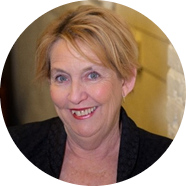
Jan Fox
Jan Fox is the co-chair for the Canadian Municipal Network on Crime Prevention. Jan is the Executive Director for REACH Edmonton Council for Safe Communities, a not-for-profit organization created to make Edmonton a safer place to live and work where she has been privileged to lead a team of professionals dedicated to making Edmonton a safer community. REACH is a coordinating council that works closely with social agencies, businesses, and citizens to invest in our community to make our city an even safer place to live, work and play. Jan takes pride in being a part of this innovative initiative that works collaboratively with many partners to improve the lives of many vulnerable Edmontonians. Jan was awarded the YWCA Lois E. Hole Lifetime Achievement Award in 2013. She was the proud recipient of the first Women of Vision Award in 1999. She has also been honored to win the Association of Professional Executives Partnership Award and the Institute of Public Administrators Teamwork award.Jan is a very active member of the Rotary Club of Edmonton and leads an exciting new initiative called the Rotary Aboriginal Partnership.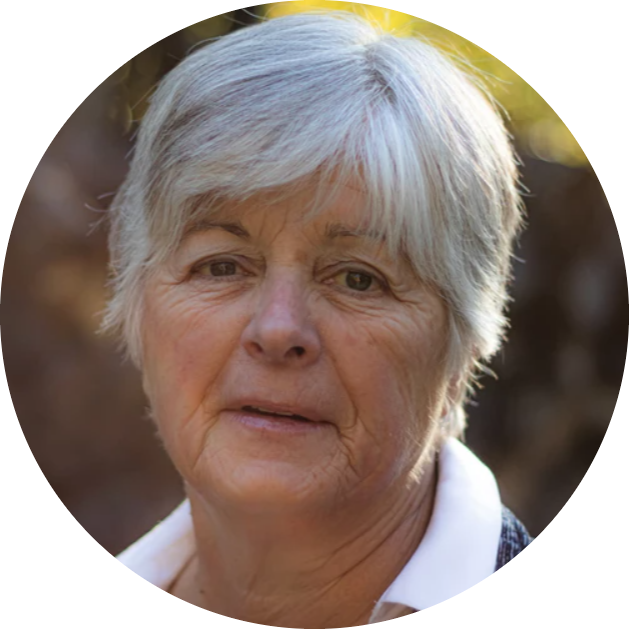
Jean Bota
Jean has always been very involved in her community, regardless of where she and her family have lived, thus the reason for entering municipal politics in the fall of 2013. She campaigned on “Safe communities and awareness through collaboration with law enforcement, community groups and citizens”. Ensuring communities felt empowered and understand what resources were available to them. Jean was re-elected in 2017. Additionally, Jean is involved in the Rd/Lacombe Rural Crime Watch Group and initiated the Police Advisory Committee, a joint venture between Red Deer County and Blackfalds RCMP detachment. She co-chairs the ‘Building Capacity in Rural Crime” Project with Jan Fox, collaboration between Alberta Community Crime Prevention, Rd/Lacombe RCW, Reach Edmonton and Canadian Municipal Network for Crime Prevention. A Civil Forfeiture Grant was awarded this past April from the AB government which has initiated the project.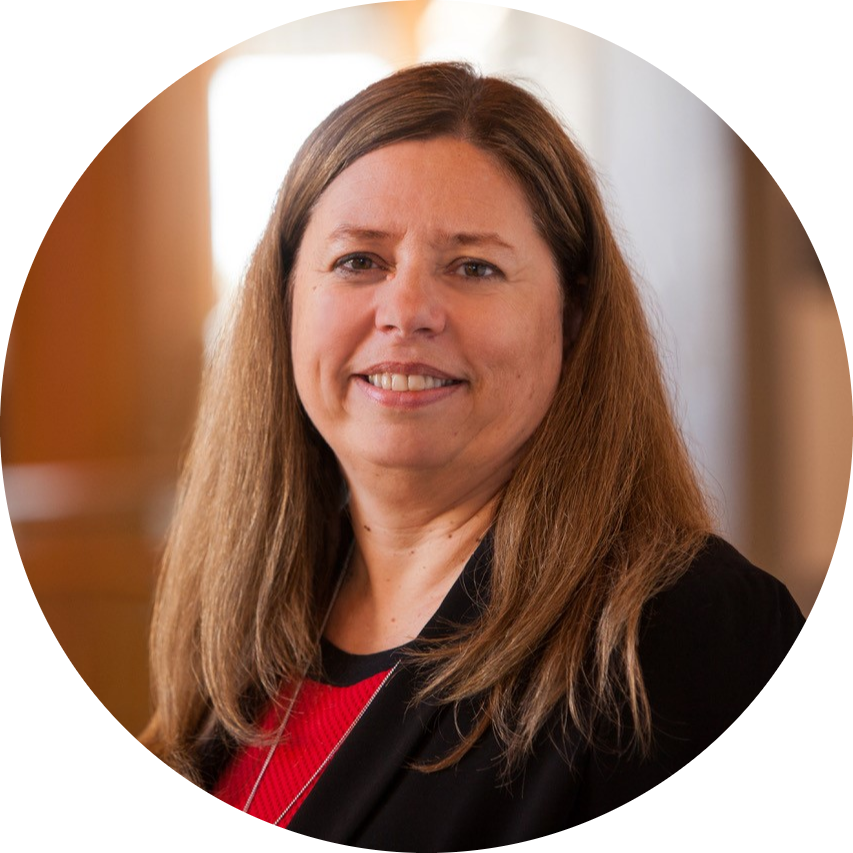
Jeanine Weeber
Jeanine, M.S.W., Ph.D., RSW (Alberta), is the Executive Director Academic at Red River College. She previously was the Dean of the Centre for Justice & Human Services at Lethbridge College. Prior to her academic career she worked in the fields of corrections and children’s mental health. Jeanine’s dedication to strong, healthy, safe communities is seen in her research. Her research projects have focused on providing practical assistance to community agencies and partners. She was the recipient of two Social Science and Humanities Research grants to evaluate the Toronto Police Services’ Neighbourhood Policing program. She was also the recipient of a community development grant supporting the development of a coalition of youth and community workers working to prevent youth gang involvement. Jeanine was awarded Humber’s Research Excellence award in 2016 for her social research contributions.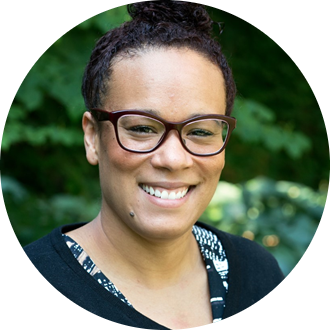
Jessica Braimoh
Jessica Braimoh is an Assistant Professor in the Department of Social Science (Criminology) at York University. Her research and teaching interests include the interrelation between social inequality and criminalization; socio-legal processes and organizing institutions; and the experiences of “at-risk” populations. Guided by principles of social justice, Jessica’s work seeks to uncover the ways that inequality is perpetuated and maintained.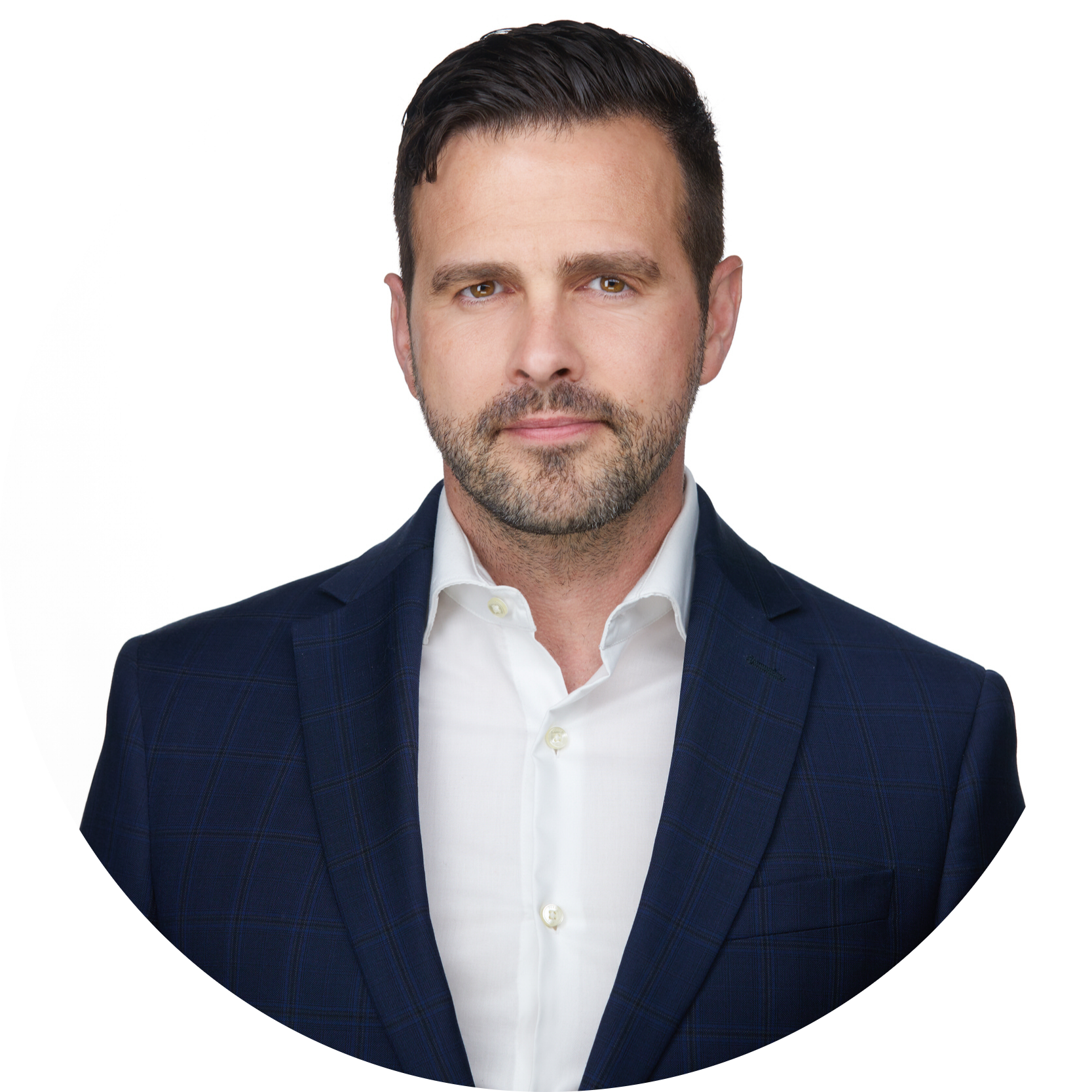
John McCoy
Dr. John McCoy is the Executive Director of the Organization for the Prevention of Violence (OPV) which is engaged with countering violent extremism in Western Canada. McCoy is an internationally recognized expert in counter extremism and terrorism and has eight years of experience as a post-secondary instructor at the University of Alberta. He is a Senior Research Affiliate at the Canadian Network for Research on Terrorism, Security & Society (TSAS) and has worked as a consultant in the Middle East, North America, Europe and the Caribbean. McCoy has represented the OPV at the G20, the General Assembly of the United Nations and Organization for Security and Cooperation in Europe. He has more than forty publications on the subjects of terrorism, violent extremism, and integration, including op-eds, policy papers, academic articles and books.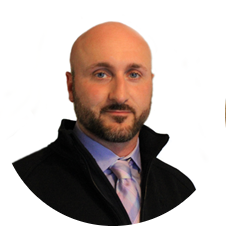
Jordan Babando
Dr. Jordan Babando completed his PhD in sociology at Queen’s University, with a specific focus on social psychology, emotions, healthcare systems and medical interactions. His interest in homelessness research stemmed from his undergraduate research experience working with the Poverty, Homelessness and Migration Project at Laurentian University. Jordan’s passion for homelessness research was further developed in his previous postdoctoral role with the Kelowna Homelessness Research Collaborative at the University of British Columbia - Okanagan. During that time, Jordan collaborated with organizations and frontline workers to develop and undertake research that addressed immediate community homelessness needs. Some recent research highlights include: a scoping review at the intersection of homelessness and pandemics that helps inform the Canadian public health responses to COVID-19; a Making the Shift funded project that uncovered and addresses COVID-19 related barriers to sustainable housing, services, and programs for youth homelessness in the Okanagan region; and a study that uncovered the challenges, successes, and innovations experienced by homelessness service organizations during the first wave of COVID-19. He is the current director of research and evaluation with Hub Solutions at the Canadian Observatory on Homelessness.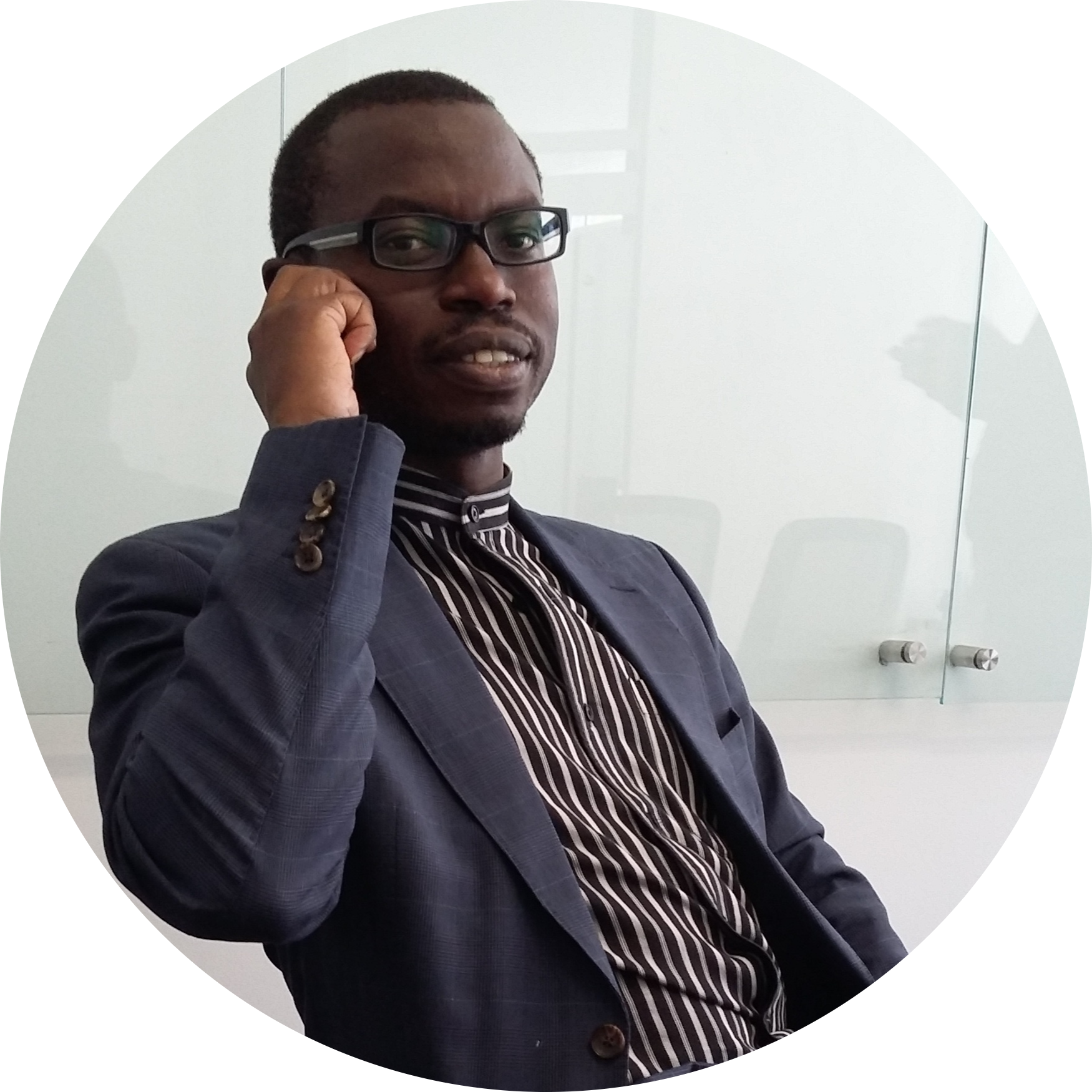
Juma Assiago
Mr. Assiago, an Urbanist and Social Scientist, is the Global Coordinator of the Safer Cities Programme at UN-Habitat. He has a Bachelor of Science degree (United States International University) and a Masters of Science degree in Sustainable Urban Development (Oxford University, United Kingdom). He joined UN-Habitat in October 1999 and has 22 years international working experience providing technical support to both national and local governments on the development and implementation of city crime prevention and urban safety strategies.Part of his achievements has been the development of the Global Network on Safer Cities (GNSC), the development and adoption of UN systemwide Guidelines on Safer Cities and Human Settlements, and realisation of several municipal crime prevention and safety strategies globally.
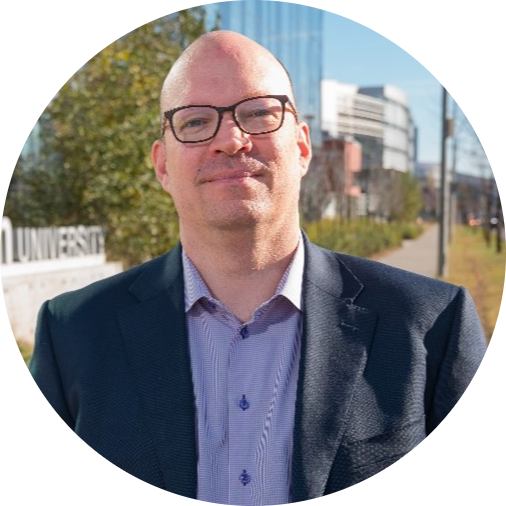
Kristopher Wells
Dr. Kristopher Wells is an Associate Professor and Canada Research Chair (Tier II) for the Public Understanding of Sexual and Gender Minority Youth at MacEwan University. His scholarly work specializes in LGBTQ2 youth, health, education, sport, and culture. Currently, Dr. Wells serves as the Editor-in-Chief of the International Journal of LGBT Youth and has been engaged in many ground-breaking educational projects such as NoHomophobes.com and Pride Tape, which is now used by all 31 teams in the National Hockey League. Dr. Wells’ work has been recognized with over 50 scholarly and community awards and recognitions including the Alberta Teachers’ Association’s Public Education Award, University of Alberta’s Alumni Horizon Award, and an Alberta Centennial Medallion.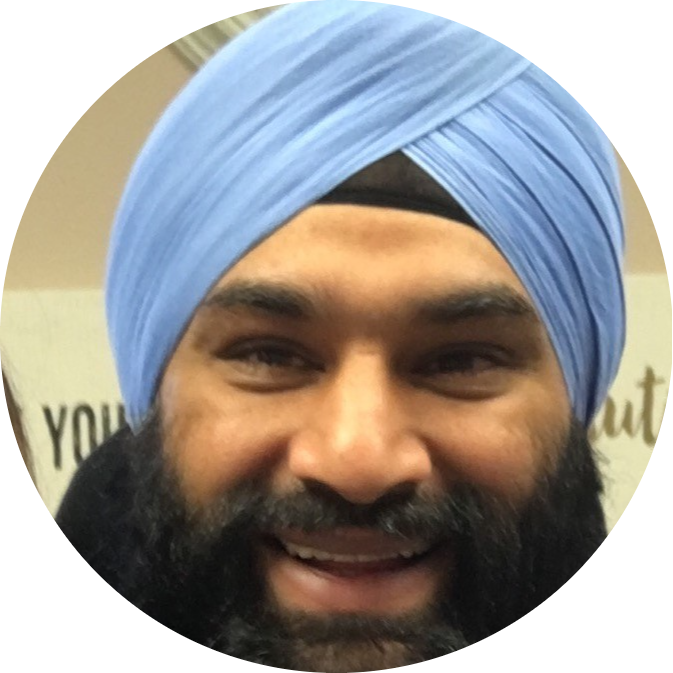
Lakhdeep Dhaliwal
Upon completion of a Master’s Degree in Education, Lakhdeep went on to become certified as an International Language Instructor and has held various positions in academia such as Elementary School Teacher, Language Assessment Officer, LINC & ESL Teacher, College Instructor, and IELTS Invigilator.Lakhdeep has a passion and purpose for front line leadership in the field of Anti-Racism, Human Rights, Equity & Inclusion. He has worked with school boards, community service providers such as YMCA Canada, Indigenous Services Canada, Halton Regional Police Service, City of Cambridge, Citizenship and Immigration Canada promoting dignity and respect for all. More recently, he fully transitioned from Instructor at Conestoga College School of Health & Life Sciences and Community Services to Vice President of Equity Education with unlearn and Coordinator for CASSA - council of agencies serving south asians on a hate crime reporting project.
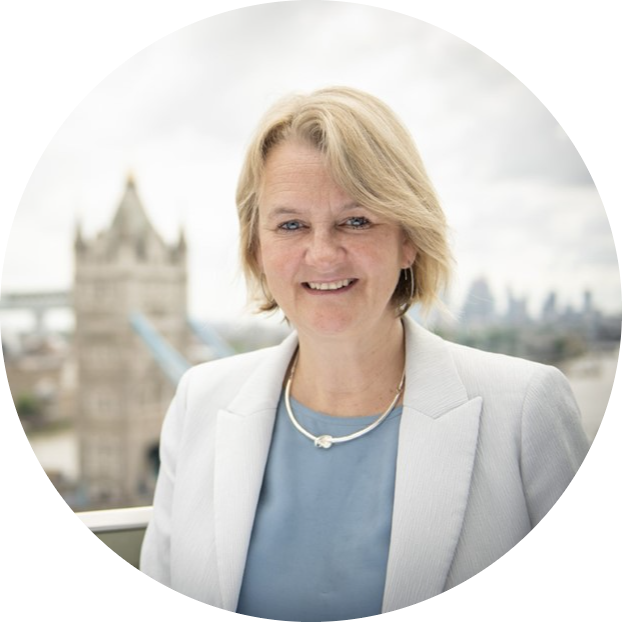
Lib Peck
Lib Peck was appointed as the Director of the Mayor of London’s newly established Violence Reduction Unit (VRU) in 2019. Prior to that Lib was the elected leader of Lambeth Council for six years, setting the strategic and political direction for the borough. During her leadership, she prioritised Lambeth’s pioneering work on challenging violence against women and girls and supported the development of a public health approach towards violence. As a London leader, Lib was the deputy chair for London Councils, a body representing all London Councils, and led on Crime and Public Protection. She was also the deputy labour leader of the Local Government Association. Lib was a councillor for 18 years before stepping down to take up her role as Director of the VRU. During her career, Lib has worked closely with and for many voluntary sector organisations.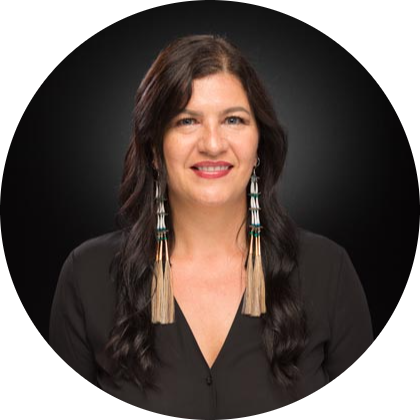
Lori Campbell
Lori is 2-Spirit nēhiyaw āpihtākosisān and is a member of Montreal Lake First Nation, Treaty 6 territory. She is an intergenerational survivor of the Indian Residential School system and a child from the Sixties Scoop generation. Lori has made it her career advocating for social justice and working towards a more equitable society for all. With over 13 years of progressive leadership in student services, academics, research and administration, Lori is an experienced leader in education with a proven track record particularly in advancing processes of Indigenization and decolonization. Lori holds two undergraduate degrees (Indigenous Studies and Psychology), a master’s degree in Adult Education and is a PhD candidate in Social Justice Education. She recently held the position of Director, Shatitsirótha’ Waterloo Indigenous Student Centre and was an Adjunct Lecturer in the Indigenous Studies academic program at St. Paul’s University College and is currently the Associate Vice President, Indigenous Engagement at the University of Regina.
Mark Bellis
Mark Bellis is Director of Policy and International Health for Public Health Wales and Professor of Public Health at Bangor University. Mark is the WHO UK Focal Point for Violence and Injury Prevention and Head of the World Health Organization (WHO) Collaborating Centre on Investment for Health and Well-being. Professor Bellis has undertaken substantive work in the fields of violence prevention, alcohol, drugs and sexual health. As well as international work with WHO, he has also worked as an advisor to organisations including United Nations Development Programme, United Nations Office on Drugs and Crime and United Nations International Children's Emergency Fund. Mark has published over 200 academic papers and more than 300 applied public health reports and books, He continues to head an on-going research programme examining Adverse Childhood Experiences (ACEs) and their impact on health and behaviour across the life course.Mathew Swarney
Matthew is Director of Government Affairs for Motorola Solutions Canada Inc., responsible for leading outreach and advocacy efforts with elected officials and departmental staff at all three orders of Government country wide as well as key stakeholders and partners in the community safety, academic and not for profit sectors.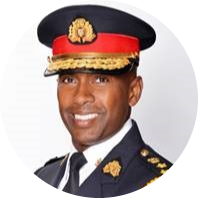
Nishan Duraiappah
Chief Nishan Duraiappah was born in Sri Lanka, and immigrated to Canada. Chief Duraiappah began his career with Halton Police in December 1995. He served in a variety of assignments throughout his career including front line policing, specialized investigations and Diversity and Community relations. He was promoted to Deputy Chief of Halton Police in 2015 leading front line policing, community mobilization as well as innovation and technology.In October 2019, Chief Duraiappah was appointed Chief of Peel Regional Police. Chief Duraiappah arrived with a mandate for change and the strategic goal of becoming the most progressive police service in Canada. Chief Duraiappah is committed to the safety and well-being of the community he serves, with one of the primary focuses being mental health and seeking multi-sectoral collaborative partnerships to reduce risk in the community.Chief Duraiappah is heavily involved in the community. He holds a Bachelor of Arts Degree in Sociology and Criminology from the University of Toronto, and a Diploma of Public Administration from the University of Western Ontario. Chief Duraiappah serves as Vice President of the Ontario Association of Chiefs of Police Board of Directors. He is the recipient of the Queen Elizabeth II Diamond Jubilee Medal and is an Officer of the Order of Merit Canada
Patrick Rivard
With over twenty years of leadership experience in the fields of education and human services, Patrick (Pat) is uniquely qualified to lead communities and organizations in understanding the traumatic impact of a pandemic. Pat brings a wealth of experience to the North American Centre for Threat Assessment and Trauma Response (NACTATR) as a 5-year National Trainer in Traumatic Event Systems (TES), and Violence Risk Threat Assessment (VTRA). Pat has been the keynote speaker for many organizations across Canada, speaking to the ways and importance of creating reasonable meaning in the challenges a pandemic brings to the human experience. He is a contributor and co- author of the nationally distributed Guidelines for Re-Entry into the School Setting and Rising to the Challenge: Staying Connected to our Students. Pat is currently working in collaboration with Dr. William Pollack, Harvard Medical School and Senior Advisor to NACTATR, in threat assessment research. He also recently co-presented with Dr. Marleen Wong from the University of Southern California, integrating her pioneering work in Psychological First Aid with the Trauma Event Systems (TES) model.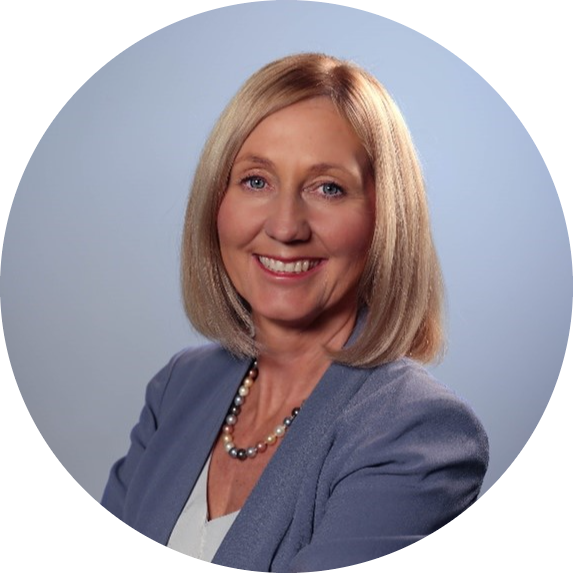
Senator LaBoucane-Benson
Senator Patti LaBoucane-Benson is a Métis from Treaty 6 territory in Alberta. Her 30-year career has been dedicated to serving her community in Alberta, across Canada and around the world—as the director of a Boys and Girls Club in St. Paul in 1990, through 23 years of service at Native Counselling Services of Alberta (NCSA), and Conference Director and Lead Facilitator of the Nelson Mandela Dialogues in Canada, an international gathering of freedom fighters that took place on Enoch Cree Nation in 2017. As a recognized catalyst for change, Dr. LaBoucane-Benson was appointed to Alberta Ministerial Panel for Child Intervention (2017-18) that resulted in Bill 18: Child Protection and Accountability Act. The primary focus of the panel was reducing the overrepresentation of Indigenous children in care in Alberta.Dr. LaBoucane-Benson continues to share her knowledge of healing from historic trauma with educators, healthcare professionals, lawyers and policy makers, as well as Indigenous communities. She believes that healing and reconciliation dialogue is the way forward in Canada, with focus on surfacing the common ground between Western and Indigenous people. The best, most useful policy and legislation will reflect this shared space that unites us as a society.
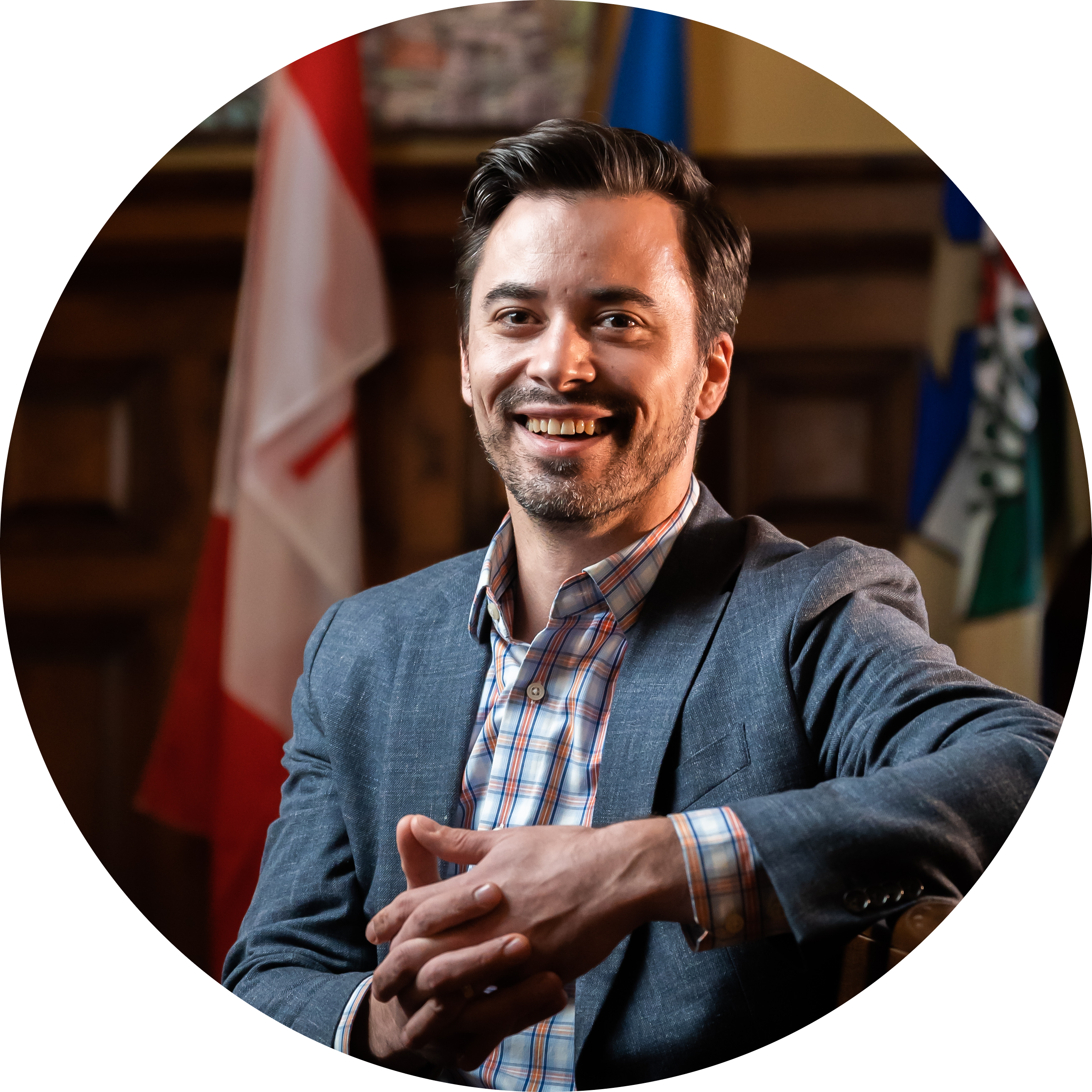
Paul Edginton
Paul Edginton is the General Manager of Community and Protective Services at the City of Wetaskiwin. Paul is passionate about building strong communities as he believes they are the backbone of our province and have a tremendous impact on our daily lives. During his career, he has found working with progressive and passionate community leaders to combat societal issues, such as homelessness or addictions, to be powerful work.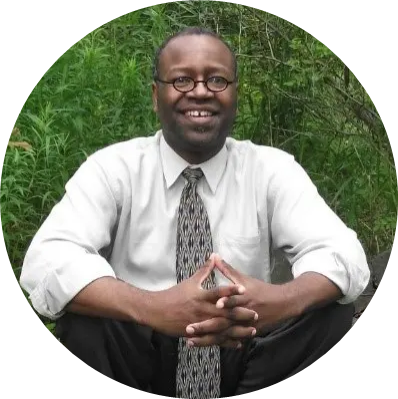
Robert Wright
Robert Seymour Wright is a Social Worker and Sociologist whose 31 year career has spanned the fields of education, child welfare, forensic mental health, trauma, sexual violence, and cultural competence. A “clinician/ academic/ administrator,” he has always integrated his work delivering direct practice clinical service to clients with teaching and supervising interns, and promoting lasting systemic change through social policy advocacy. He also consults, trains, speaks and comments on a wide range of issues. His extensive pro bono work gave birth to The Peoples' Counselling Clinic, a non-profit mental health clinic. His pioneering work with colleagues in cultural competence and conducting cultural assessments has received national attention.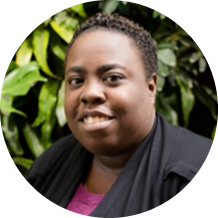
Roxanne Springer
Roxanne is a health geographer and climate change adaptation specialist whose previous research examines the impacts of climate change on human wellbeing and the intersection between non-communicable diseases and climate change. She has expertise in vulnerability and adaptation assessments in the context of climate change. Roxanne has worked as a research associate with the Viessmann Centre for Engagement and Research in Sustainability (VERiS) at Wilfrid Laurier university exploring the connections between climate change and community safety. Currently Roxanne works as a researcher for the Canadian Municipal Network on Crime Prevention (CMNCP) on a project investigating the role of school professionals in the prevention of social polarization and radicalization leading to violence.Roxanne holds a Ph.D. in human geography and a Master's degree in Climate Change from University of Waterloo.
Sarah Schulman
Dr. Sarah Schulman is a white, Jewish woman living and learning on stolen Coast Salish territory, specifically the Sḵwx̱wú7mesh (Squamish), Stó:lō and Səl̓ílwətaʔ/Selilwitulh (Tsleil-Waututh) and xʷməθkʷəy̓əm (Musqueam) Nations. She has spent her career in buses, bingo halls, back alleyways, and board rooms. As a social scientist focused on re-imagining complex social challenges, Sarah collaborates with people, nonprofits, cities, government agencies and philanthropies to make & test alternative social support models from the ground-up. She is the Founding Partner of InWithForward, a social design shop, which brings social science and design methods together. Her teams have produced award-winning and scalable interventions like Kudoz, a learning platform for adults with cognitive disabilities, and Family by Family, a network of families helping families stay out of the child protection system. Sarah holds a B.A (honors) in Human Biology and an M.A in Education from Stanford University as well as a DPhil in Social Policy from Oxford University, where she was a Rhodes Scholar. In 2019, Sarah was a Munk Global Journalism Fellow at the University of Toronto, where she’s learning how to bring journalism, ethnography, and design together to surface and challenge stuck social narratives.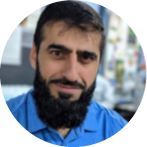
Tariq Tyab
Tariq Tyab has been a community capacity builder for over 20 years. His passion for breaking silos and building bridges has enabled multiple organizations to work with new Multicultural and Faith community allies. He is a co-founder of the Official Faith Based Community Convener for Resilience B.C., Foundation for a Path Forward, as well as Islam Unravelled Educational Initative, and the Muslim Food Bank. Tariq also serves as the VP of Media for the BC Muslim Association, the provinces largest Muslim organization. As a social entrepreneur, Tariq is also a co-founder of a technology company focused on developing solutions for shared community challenges.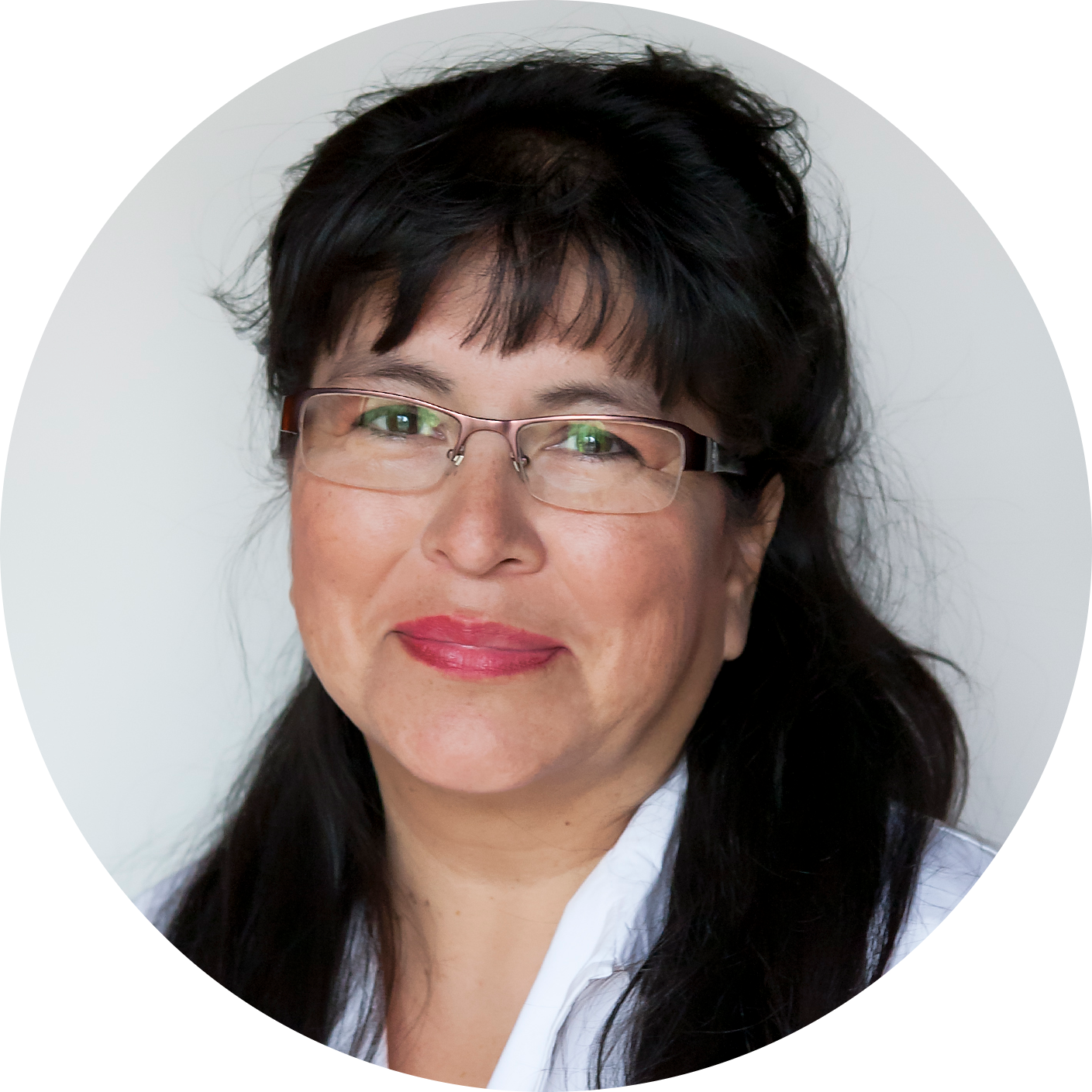
Verna McGregor
Verna McGregor is from the First Nation Algonquin Community of Kitigan Zibi Anishinabeg which is approximately 120 kilometres north of Ottawa, Ontario. Ottawa and Gatineau form part of the Algonquin Nation’s traditional unceded lands. Verna works at Minwaashin Lodge – The Indigenous Women’s Support Centre in Ottawa delivering an employment training. Verna has remained firmly grounded in her community and nation by being part of also the group of traditional Grandmothers (Kokomisag) and Elders. This includes the importance of promotion of retention of the Algonquin language and culture which is so important when addressing issues from a cultural perspective.